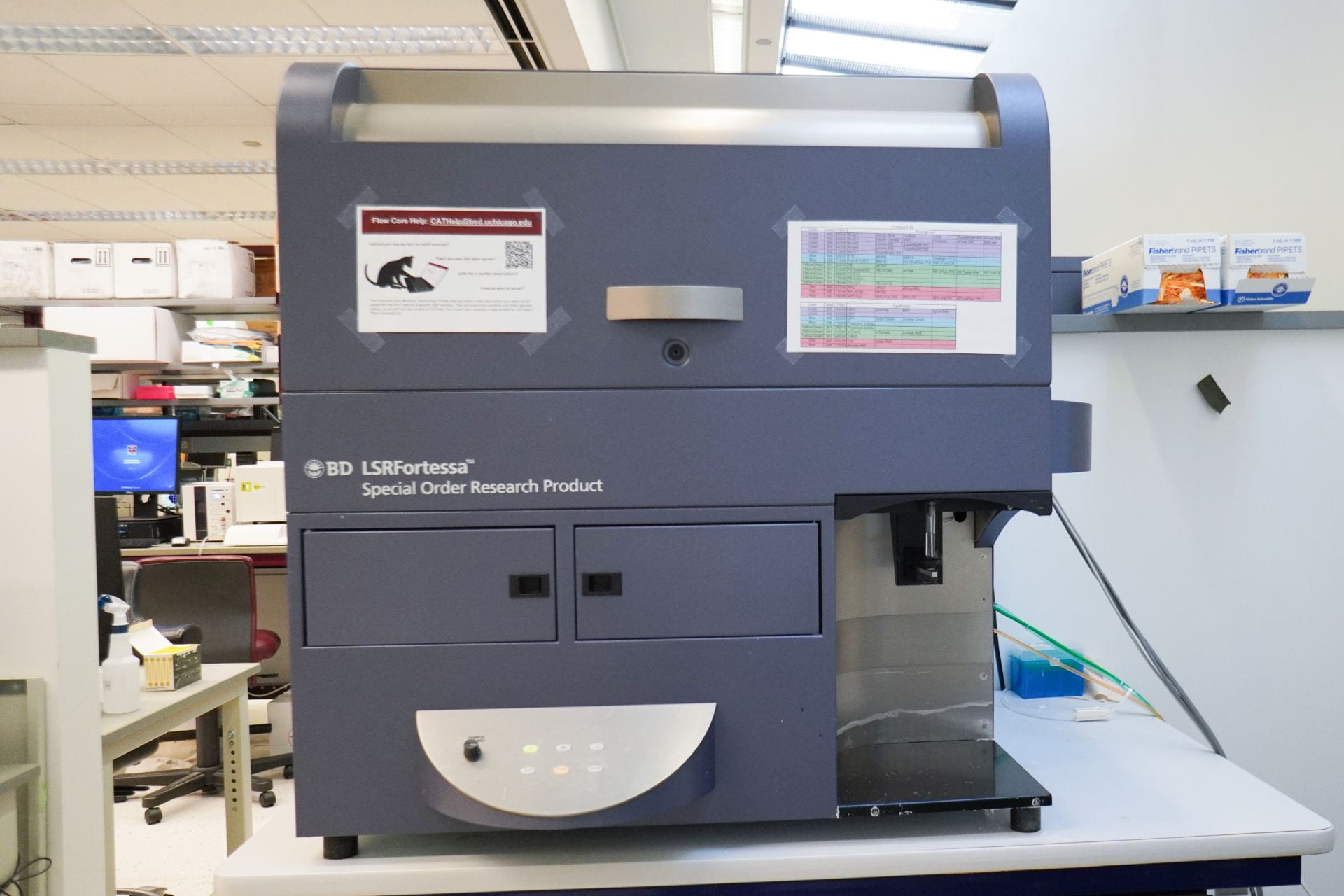Benchtop Analyzers
Check Instrument StatusOverview
The benchtop analyzers can be divided into two categories: full spectrum and traditional.
Traditional Flow Cytometers
Traditional flow cytometers assign one fluorophore to one detector so that each detector captures the peak emission of one fluorophore. For some panels, detectors may also capture spillover signal from other fluorophores not assigned to that detector – this spillover is “fixed” with a mathematical process called compensation.
Spectral Flow Cytometers
Full spectrum or spectral flow cytometers (SFC) utilize all of the detectors in the cytometer to measure the emission of every fluorophore in the panel. Each fluorophore is defined by its unique spectral signature and a mathematical algorithm called spectral unmixing is used to sort the photons into the appropriate parameter in the data file. SFC is ideal for high parameter panels (about 10+) and tissues with high autofluorescence, but any size panel can be run on these cytometers. For more information on the technology check out the dedicated Aurora page linked below. Note: additional training is required, see the dedicated Aurora page for more information on training.
Choosing a Benchtop Analyzer
The CAT Facility has a variety of benchtop analyzers to choose from! When selecting an analyzer you’ll first want to ensure that the analyzer has the appropriate lasers and detectors for your panel. The “Analyzer Fluorophore Comparison Table” below can help determine that. Or if you don’t have a panel yet, be sure to design it for the chosen cytometer! The second component of analyzer selection is to determine if your specific experiment will benefit from the special features available on certain analyzers. An overview of the different features is provided below. Feel free to contact the staff if you need further assistance determining the best analyzer for your experiment!
For Best Practice
Keep in mind that when running repeat experiments that will ultimately be combined into a single figure – the best practice is to run all experiments on the exact same analyzer.
A quick overview of which fluorophores can be used on each cytometer (not an exhaustive list). See dedicated analyzer pages for more detailed optical configurations.
Compare features of all benchtop analyzers.
Available Analyzers
More details on each analyzer can be found on the dedicated pages linked below. This may include further information about special features, detailed configuration and optical layout, troubleshooting tips, and anything else specific to the analyzer.
Note: The CAT Facility staff and iLab scheduler site use nomenclature to specifically identify each instrument: Model_# lasers-# detectors. For the spectral flow cytometers the CAT Facility assigned colors to distinguish them because they are otherwise identical. When publishing data from CAT Facility instruments please see the Boilerplate Texts under the About menu for guidance on writing the methods section.

Fortessa
Traditional Analyzers
Fortessa 4-15, Fortessa 4-15 HTS

Attune NxT
Traditional Analyzer

Quanteon / Penteon
Traditional Analyzers

Aurora
Spectral Flow Analyzers
Aurora-B, Aurora-G, Aurora-R
Pricing
Unassisted
- Billed time measured Windows session by iLab
- Booked but unused time billed at 80%
- Drop-off service available for additional Tech time $37.13/hr
